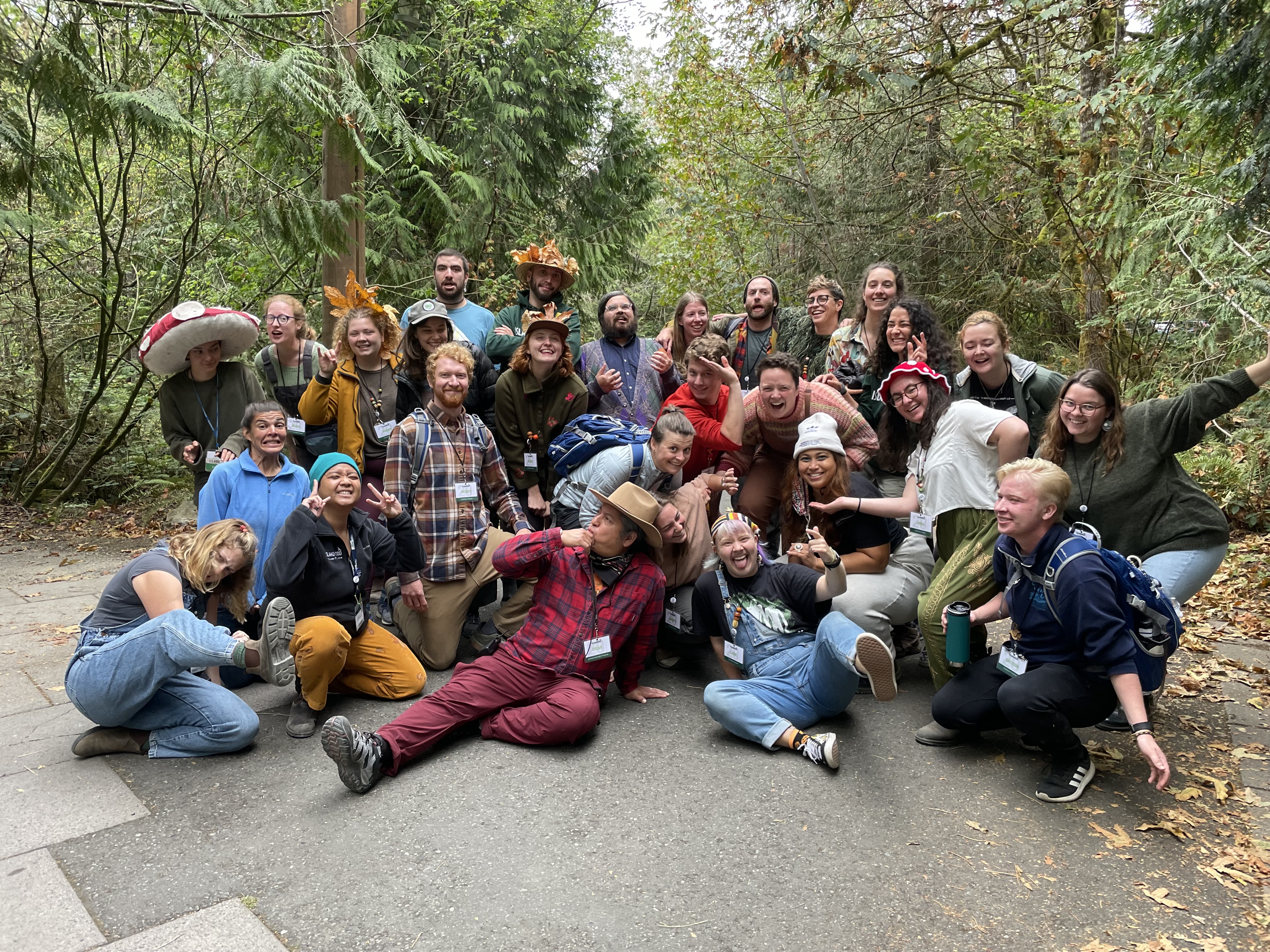Join us in celebrating IslandWood’s Education for Environment and Community’s Class of 2023 graduate cohort! This is an opportunity to learn about the tremendous work our grads have done in their Spring quarter classes and to highlight their academic achievements in IslandWood’s Education for Environment and Community’s graduate certificate program, in partnership with the nationally-ranked University of Washington’s College of Education’s Masters in Education degree program! Come ready to learn, ask questions, and celebrate the growth and learning of our esteemed scholars, educators, and soon-to-be alumni!
Brief descriptions of Spring 2023 academic courses:
Collaborative Projects in Educational Leadership Courses –
Democracy & Education taught by Michela Dimond. The essential question of the course is “What is Democratic Education and what is our/my role in that?” explored through the goods held in tension within a democracy. In this course, participants explore the theory and practice of democracy as it relates to our practice as educators. Through this exploration course members link democratic & educational theory to our practice as educators. Grads think about and work to understand politics, justice, democracy, and other powered concepts in the context of education and use our own experiences in conjunction with contemporary and historical case studies as tools for reflection & deliberation to make sure that the vision of democratic education we create is grounded in felt experience. The essential question of the course is “What is Democratic Education and what is our/my role in that?” explored through the goods held in tension within a democracy.
Climate Change, Climate Justice & Emotionality taught by Renée Comesotti: What does it mean to be a child in the Anthropocene–or a teacher? This course is about teaching and learning in a time of climate crisis, with an explicit goal of realizing education for justice and action. The course starts by looking inward to how knowledge, emotionality and connection (or the lack of these) shape grads personal response to anthropogenic climate change. Grads investigate some of the myriad ways that climate injustice intersects with and feeds historic and systemic injustices, and consider the implications for education and action. The course explores how Indigenous and other epistemologies may offer solutions to our current crises in education and climate and challenge the limitations and injustices of Western knowledge systems. Grads assemble toolkits of powerful, practical strategies and approaches for building students’ literacies in environmental science, climate and climate justice, and leverage combined insights and expertise to imagine and enact learning experiences to support students’ empowerment as change agents within their communities. And above all the course challenges members to find ways to foster resilience, efficacy and justified hopefulness for our students and ourselves.
Qualitative Research Methods taught by Dr. Déana Scipio: This workshop-style course introduces grads to different qualitative research methods in educational research, provides a context for workshopping final products e.g. exams, projects, etc., and builds grads’ understanding of qualitative research methodologies by giving them opportunities to interact directly with researchers. Through a combination of readings, mini lectures, discussions, visitors, and class exercises, grads will be introduced to qualitative research concepts, theories, and practices. Grads will use the methodological text Qualitative Research: Bridging the Conceptual, Theoretical, and Methodological (Ravitch & Carl, 2021) as their central textbook. Grads will read additional empirical pieces by multiple critical scholars and educational researchers.
Advanced Instructional Strategies taught by Ray Cramer: This workshop class provides opportunities for action research among graduate instructors seeking to apply and refine their practice across a wide variety of educational settings. Students are refining their behavior management; assessment of prior knowledge and new learning; and engagement of students in their learning activities. They do this in many ways, including: submitting an article on a teaching technique for publication, practicing observing and providing feedback with a peer, and evaluating student learning through videos, observations and student work.
Please register to learn from and with the IslandWood EEC 2023 Graduate Class from where ever you may be in the world!








